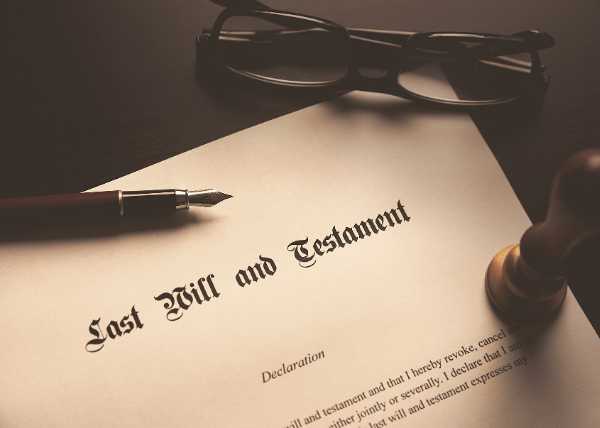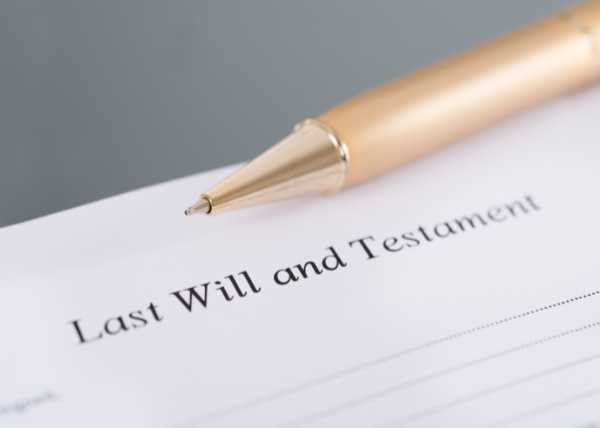
When a person passes away, their final testament, known as a will, becomes a crucial document. The will outlines how the deceased individual's assets and estate should be distributed amongst their beneficiaries. At the heart of this process is the executor, a person or institution named in the will, responsible for managing the estate and ensuring the wishes of the deceased are carried out.
An executor is a person or entity appointed in a will to carry out the instructions and wishes of the deceased individual. They are responsible for managing and distributing the assets of the estate, paying any outstanding debts or taxes, and ensuring that the final wishes of the deceased are fulfilled. Executors have a legal and fiduciary duty to act in the best interests of the estate and its beneficiaries.

A will is a legal document that outlines how a person's assets and property should be distributed after their death. It allows individuals to specify who will inherit their belongings and can also include instructions for other matters such as guardianship of minor children and funeral arrangements. A will is an important tool for ensuring that a person's wishes are carried out and can help prevent disputes among family members.
However, being an executor is not a blank check to do anything they wish with the deceased's estate. There are certain things that an executor cannot do.
The will is the final voice of the deceased, and it provides explicit instructions on how the person's estate should be handled and to whom it should go. The executor cannot simply disregard these instructions. They must distribute assets exactly as the will dictates, even if they personally disagree with the terms of the will. Failing to follow the will can result in legal action against the executor.
When someone passes away, certain parties must be notified. This can include beneficiaries named in the will, creditors of the deceased, and in some cases, government institutions. The executor is responsible for making these notifications. They cannot fail to do so or selectively choose who to notify.
Executors are expected to communicate with the beneficiaries and keep them informed about the process. They cannot withhold information, such as the value of the estate, the assets it contains, or how long the process is expected to take. Beneficiaries are legally entitled to this information.
Executors are obligated to act in the best interests of the estate and its beneficiaries. This is called a fiduciary duty. They cannot mismanage the estate, whether intentionally or through negligence. Mismanagement might include failing to pay taxes, not protecting assets, or otherwise making decisions that result in loss to the estate or the beneficiaries. If the executor mismanages the estate, they could be held legally responsible for any losses.
The role of an executor is to act in the best interest of the estate and its beneficiaries, not to enrich themselves. Unless the will specifically states that the executor is to receive a certain asset or benefit, they cannot take anything from the estate for their personal use.
Before assets can be distributed to beneficiaries, any outstanding debts and taxes must be paid from the estate. An executor cannot simply ignore these financial obligations. Failing to settle debts and taxes can result in personal liability for the executor.
Once an executor has accepted the role, they are obliged to see it through to completion. They cannot simply change their mind and decide not to act. If they find they cannot or do not want to perform their duties, they must formally renounce their role, and a replacement executor must be appointed.
As much as the role of an executor of a will is accompanied by significant limitations and restrictions, it also comes with certain powers and duties. An executor is a person named in the will of a deceased individual to manage their estate. They are responsible for carrying out the deceased's final wishes regarding the disposal of their property and possessions.
The executor has the right to collect and take control of the deceased's assets. This includes everything from real estate and vehicles to bank accounts, securities, personal belongings, and more. The executor is responsible for safeguarding these assets until they can be distributed to the beneficiaries or used to pay off any debts.
Executors have the authority to manage the financial affairs of the estate. This includes paying ongoing bills, cancelling credit cards, setting up estate bank accounts, and continuing necessary insurance policies. In essence, they step into the shoes of the deceased to manage these day-to-day financial affairs.
One of the primary responsibilities of an executor is to use the assets of the estate to pay off any outstanding debts and taxes. The executor has the power to sell estate assets to cover these obligations if necessary. Executors also file the final personal income tax return for the deceased and the estate tax return, if applicable.
Once debts and taxes have been paid, the executor has the power to distribute the remaining assets to the beneficiaries according to the instructions outlined in the will. They may need to sell assets (like property or stocks) to do this or transfer assets directly to the beneficiaries.
An executor isn't expected to do everything themselves. They have the power to hire professionals such as lawyers, accountants, real estate agents, and others to help manage the estate. These expenses are paid from the estate.
Should any disputes arise among the beneficiaries regarding the will or distribution of assets, the executor has the authority to mediate and help resolve these disputes. In more complex situations, they may need to seek court intervention to resolve these issues.
If necessary, executors can represent the estate in court. This may occur if there are legal disputes about the will or if a beneficiary or creditor sues the estate.
In conclusion, while an executor holds significant responsibility and power in managing and distributing a deceased person's estate, there are numerous legal and ethical constraints that they must adhere to. Failing to do so can lead to serious legal consequences. Understanding these limitations helps keep the process fair and ensures the deceased's final wishes are respected.
Our expert partner attorneys offer free consultations for your claim.